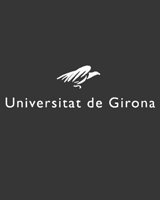Institutional Members

The Spanish National Research Council (CSIC) is the largest public institution dedicated to research in Spain and the third largest in Europe.
CSIC plays an important role in scientific and technological policy, since its multidisciplinary and multisectorial nature means CSIC covers all fields of knowledge, and its activity extends from basic research to technological development, involving a range of important facilities and joint research units in addition to its own 122 institutes.

The University of Barcelona (UB) is Spain’s leading research university with 106 departments and more than 5,000 full-time researchers, technicians and research assistants in the 243 research groups.
The Science and Technology Centres (CCiTUB) are a group of UB centres that support research both in the university and in other public and private institutions. The UB is also home to three large research foundations: the Barcelona Science Park Foundation (PCB), which includes the Institute of Biomedical Research (IRBB) and the Institute for Bioengineering of Catalonia; the August Pi i Sunyer Biomedical Research Institute (IDIBAPS); and the Bellvitge Institute for Biomedical Research (IDIBELL).

The Universitat Autònoma de Barcelona (UAB) has in recent years seen recognition for its efforts in promoting quality in teaching, in attracting international talent and in obtaining a growing impact in research, together with a progressive improvement in its classifications in the most prestigious and influential international rankings.
The UAB coordinates a potent scientific and technological centre, the “Esfera UAB”, promotes new business projects, and directs and projects its productive activity towards its socio-economic surroundings by disseminating new knowledge. UAB is internationally renowned for its quality and innovation in research.

The BSC-CNS (Barcelona Supercomputing Center – Centro Nacional de Supercomputación) is the national supercomputing facility in Spain since 2005. BSC-CNS coordinates the Spanish Supercomputing Network and manages one of the most powerful supercomputers in Europe.
This supercomputing facility, the MareNostrum III cluster. The mission of the BSC-CNS is to investigate, develop and manage information technology in order to facilitate scientific progress. Exposure to industrial and non-computer science academic practices helps focus basic research towards improving practical performance, with very positive results both for research and society.

The University of Girona (UdG) is a public institution devoted to excellence in teaching and research and to participating in the progress and development of society through the creation, transmission, dissemination and criticism of knowledge related to the sciences, technology, the humanities, the social sciences and the arts.
The UdG, deeply rooted in Catalonia and Catalan culture, is one of the primary economic and cultural motors of the region. At the same time, it pursues a vocation of universality and openness to all traditions and cultures.

The Universitat Pompeu Fabra (UPF) is a public university founded in 1990 with a commitment to offering a high-quality teaching model and outstanding research with international projection. The University has begun to figure prominently in some prestigious international rankings, and has been recognised for its excellent urban campuses in Barcelona.
Its outstanding research model is primarily based on a policy of being an institution that is open to the world, incorporating prominent national and international researchers. UPF’s international profile is the result of a strategy focused on establishing a policy of alliances with a network of preferred partners and the recruitment of lecturers with an international background.

The University of Burgos (UBU) finds its origins in the cathedral schools of the Middle Ages and the Faculty of Medicine during the 18th and 19th centuries in a historic city in Spain. Established in 1994 in its present legal form, this state university enjoys full academic freedom and inclusive management with its own separate campus in the ancient city of Burgos.
The University of Burgos currently has almost 10,000 students studying at 5 centres, as well as at three associated schools. It currently offers over 30 different undergraduate degrees and, in addition, over 20 PhD Programmes, as well as several Official Masters and other graduate courses.
